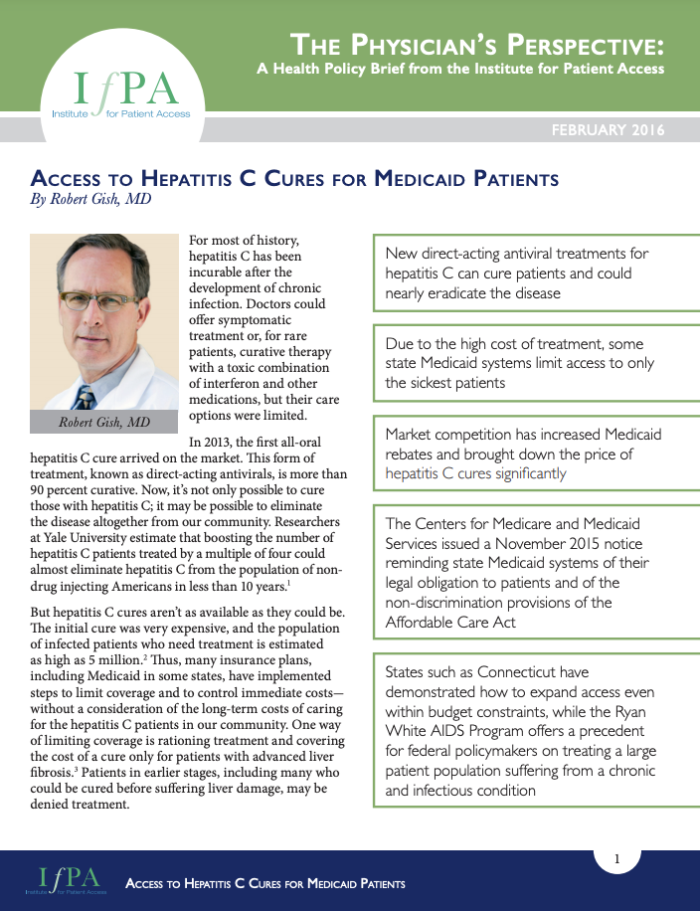IfPA Policy Brief Considers Impact of CMS Notice on Hepatitis Patients
February 4, 2016
by Amanda Conschafter, blog editor
In a November 2015 notice the Centers for Medicare and Medicaid Services warned that states rationing costly hepatitis C cures may “unreasonably restrict access” for Medicaid patients. Now a newly released policy brief from the Institute for Patient Access details the value of curative treatments, the nature of current restrictions and what CMS’ notice could mean for patients and state Medicaid officials.
Hepatitis C Cures: Value & Access Challenges
 As “Access to Hepatitis C Cures for Medicaid Patients” explains,
As “Access to Hepatitis C Cures for Medicaid Patients” explains,
hepatitis C was largely incurable until the development of direct-acting antivirals. These therapies are more than 90 percent successful at curing patients. Moreover, they introduce the possibility of one day nearly eradicating hepatitis C altogether from the non-drug injecting population.
But the high cost of the initial cure coupled with the immense size of the patient population pose real challenges, especially for state Medicaid systems. Thus, some systems ration treatment, covering the cost of a cure only for patients with advanced liver fibrosis.
CMS’ Notice to State Medicaid Systems
Aware that Medicaid care rationing could be construed as discrimination under the Affordable Care Act, the Centers for Medicare and Medicaid Services took action. In November 2015, the policy brief explains, CMS issued a notice to state Medicaid systems, reminding them that:
- State Medicaid officials must work to ensure patients have access to “effective, clinically appropriate and medically necessary” treatments.
- States should use all available tools to lower prices on hepatitis C cures
- Rising rebates and competition among new drugs entering the market are lowering drug prices. “This competition may enhance the ability of states to negotiate supplemental rebates or other pricing arrangements…thereby reducing costs,” the notice explains.
As states consider how to implement CMS’ notice, they must keep in mind the long-term benefits and cost savings associated with curing hepatitis C, the brief explains. “Treating patients before they suffer complete liver breakdown,” the brief notes, “could reduce incidents of cirrhosis, death, liver transplant and liver cancer.”
“Access to Hepatitis C Cures for Medicaid Patients” is authored by Robert Gish, MD, a member of the Alliance for Patient Access’ Hepatitis Therapy Access Physicians Working Group. Read the full policy brief here.
Tags: Hepatitis, Regulatory IssuesCategorized in: Blog

